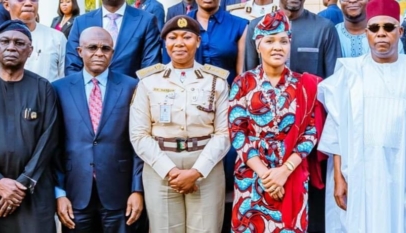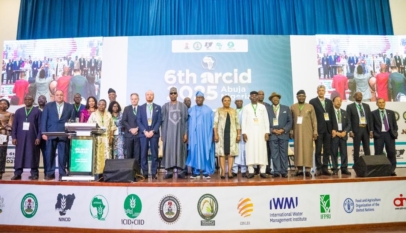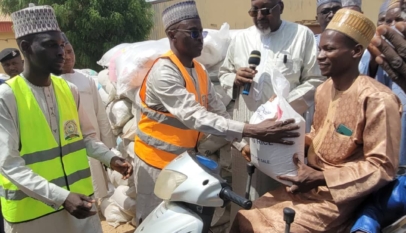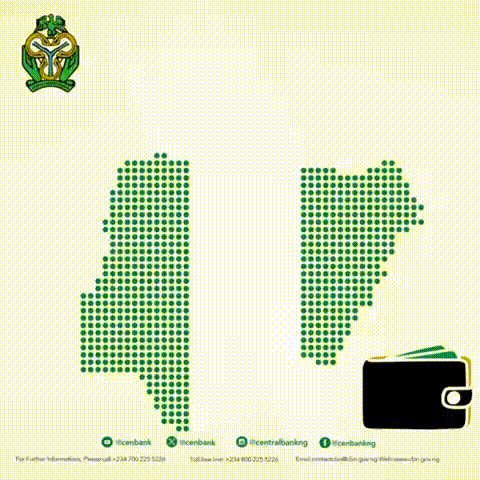
Food Security: FG Develops 15,000ha Irrigable Land for Farmers
As part of efforts to achieve food security in the country, the Ministry of Water Resources and Sanitation, has said its developing 15,000 hectares irrigable land for farmers to encourage all year round food security.
The Minister of Water Resources and Sanitation, Prof. Joseph Utsev disclosed this at the 30th Regular Meeting of the National Council on Water and Sanitation on Thursday in Abuja.
He said, the irrigable land, which are nearing completion would be handed over to farmers by the end of the 3rd quarter of year 2024.
According to him, the Ministry proposes to channel all efforts towards achieving the target of developing 500,000ha of land by 2030, in line with the present Administration’s Renewed Hope Agenda, for sustainable food production and security.
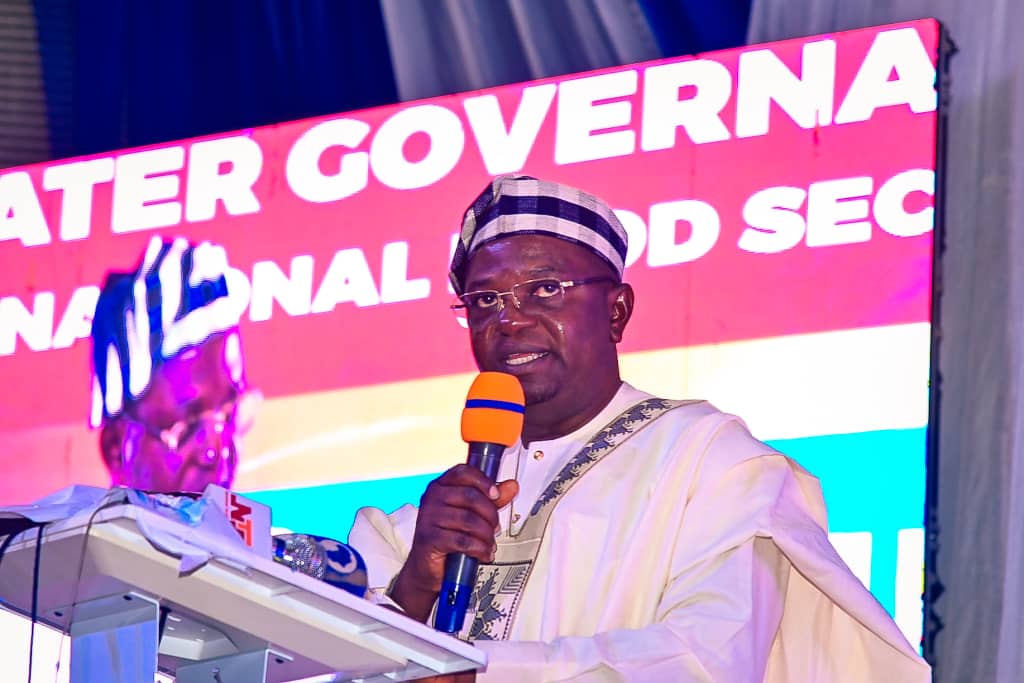
He however, noted that this would be achieved in collaboration with the Federal Department of Irrigation and Drainage, River Basin Development Authorities, States, LGA, and the Private Sector.
He emphasised the need for an urgent synergy between the Federal Ministry of Agriculture and Food Security with the Federal Ministry of Water Resources and Sanitation to ensure adequate irrigation of farmland and to guarantee that food is produced all year round.
He said, in line with the Presidential mandate for food security, the twelve (12) River Basin Development Authorities (RBDAs) must ensure the planting of crops during the dry season with irrigation schemes that will guarantee continuous farming production all year to stem the seasonal glut and scarcity.
To further align with President Bola Ahmed Tinubu’s Renewed Hope Agenda and the Declaration of State of Emergency on Food Security, he said, the Ministry has introduced some flagship Projects and Programmes that are aimed at revolutionizing Nigeria’s irrigated agricultural landscape, boosting food security, alleviating poverty, creating jobs and propelling economic growth.
“The new flagship Projects and Programmes include; the Water for Expanded Irrigated Agriculture Programme (WEIRPRO), Partnership for Expanded Irrigation Programme (PEIRPRO), and River Basin Strategy for Poverty Alleviation (RB-SPA).
“To implement the identified projects and programmes, the Ministry is committed to innovative Water Resources Management, cultivating partnerships with State, Local Governments, and communities to enhance agricultural productivity, transitioning from traditional methods to a more scientific approach that guarantees all-year-round farming, frequent cropping cycles, and higher crop yields”, he said.
The Minister announced that in consonance with the efforts of the Ministry towards proper harnessing of both surface and groundwater, for multi-purpose use, including Water Supply, Sanitation, Irrigation, Hydropower generation amongst others, the Ministry has rounded off the repair of the vandalized Air Valve Chamber of the 75km Gurara Water Transfer Conveyance Pipeline to Usuma Dam, and the rehabilitation of the Gurara Dam 30MW Hydro-Power Plant.
He further disclosed that the study and design of three (3) more earth dams at Giri in FCT, Nigeria Defence Academy (NDA), Afaka in Kaduna State, and Jemagu in Kano State have been completed.
He revealed that under the sanitation sub-sector, the Ministry has constructed 9,198 sanitation facilities in 127 Local Government Areas to serve 550,820 people in public places and institutions such as markets, motor parks, Internally Displaced Persons (IDP) camps, schools, etc.
He said, “as of today, under the WASHNORM, access to basic drinking water stands at 67% while access to basic sanitation services stands at 46%”.
He revealed further that the Ministry through the “Clean Nigeria: Use the Toilet” Campaign launched in 2019, has secured an additional 12 Open Defecation Free (ODF) LGAs in five States of the Federation; bringing the number to 117 LGAs across the country that are ODF with Jigawa State attaining the State-wide ODF in Nigeria.
The Minister of State for Water Resources and Sanitation, Rt. Hon. Muhammad Goronyo said, despite the laudable achievements recorded by the RADAS, Nigeria’s agricultural environment with 3.14 million hectares of irrigation potential is being threatened by land degradation, deforestation, rapid population growth, effect of climate change and ciner socio-economic development challenges.
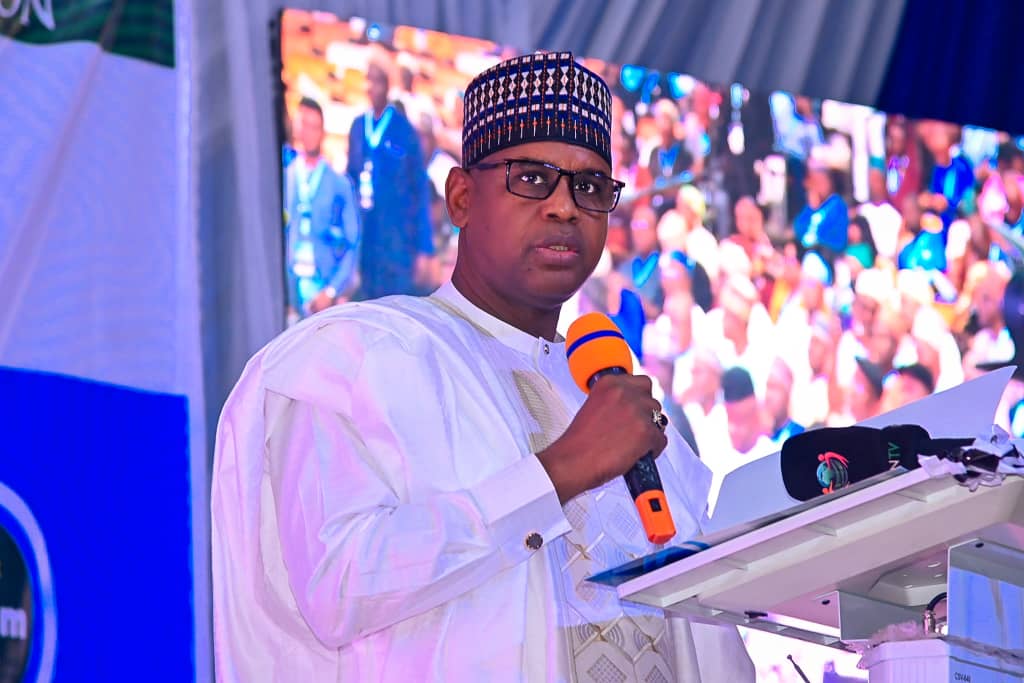
Hon. Goronyo also disclosed that the nation’s water governance structure to support the food security programme is very weak and called for urgent actions to reverse the trend.
He said, it was against this background that this 30th meeting of the National Council on Water Resources and Sanitation was Premised on the theme “People, Planet and Prosperity: Promoting Water Governance for National Food Security”.
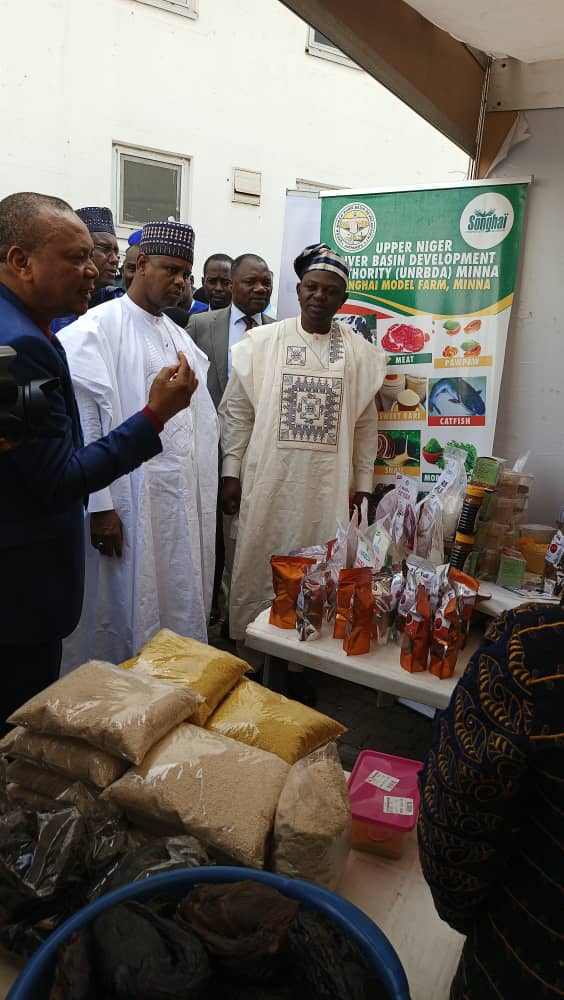
Accordingly, he said, the direction of the Council’s deliberation was to focus on the three (3) pillars of Sustainability; people (social), planet (environment), and prosperity (economic) as well as how to fashion out a comprehensive water governance strategy towards achieving the national food security.
The Minister urged the Council Members to use their wealth of experience and come up with workable and enforceable policies towards sustainable water resources management that will address the issues of access to water supply, sanitation and hygiene, food security, poverty alleviation, integrated rural development, employment generation and good environmental management,
Earlier, the Minister of the Federal Capital Territory, Nyesom Wike said, the meeting was timely and crucial, as the country seeks to develop strategies and policies that will enhance water governance practices, improve water resources management, and increase agricultural productivity.
The Minister who was represented by the Acting Permanent Secretary, FCT, Mr. Udoh Samuel Attang expressed optimism that the outcomes of the Council’s deliberations would have far-reaching implications for the future of the nation’s food security and overall development.
Water Resources Ministry seeks synergy with Agriculture for all year food security

